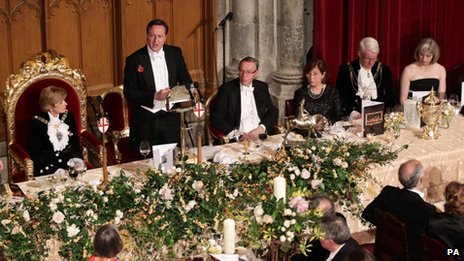Torrentfreak are following the activities of the City of London’s Police Intellectual Property Crime Unit; they reported one intervention in a story called “UK Police Accuse Domain Name Registrar of Facilitating Criminal Activity”. An extraordinary story in which a police force threaten domain registrars with action if they don’t take action on alleged infringing sites using their services. If you read the story, you’ll see the accusations and language used by the police seem to have forgotten the British legal principle of innocent until proved guilty. Many of the comments were the normal pro-piracy comments although there’s one or two more thoughtful. It provokes me to write the following, although I should shorten it if I choose to publish these views as a comment there.
You and many of your correspondents are missing something here.
The City of London Police is unique in the UK in that it has no Police and Crime Commissioner. It is accountable to the City of London Council, a notorious democratic black hole. Certainly, the Council of the City of London is not elected on a one citizen, one vote basis since businesses have the vote and the latest Tory reforms would seem to remove the Home Secretary’s supervisory duties from all police forces. It does not mention if the Inspectorate have a right or duty of inspection on the City of London force. I had a quick look at the 2010, 1997 & 1964 Police Acts and none of these mention the City of London force. I can’t find the legislative basis for its existence, but I only spent 45 minutes looking for it. To me, it is exceptionally unclear how the City Police are held to democratic control.
From Wikipedia it would seem the bulk of the City of London police work is aimed at national crime so I wonder about their jurisdiction and obviously a move from national investigation without a warrant to international crime is a small step. You can research the political “reforms” that led to the late establishment of the national British police institutions yourself but they have been both organic and statutory. The democratic control has often been questionable with Home Secretary appointments and reserve powers being part of the landscape. (The Home Secretary still has some role in the appointment of the Metropolitan Police Commissioner, the chief policeman for the rest of London. [The Met have 31,000 police, the CoLP under 1000]).
Those who have read Anton Vickerman’s post trial statement will remember how his prosecutors built a relationship with the Bedfordshire Trading Standards Unit to, it would seem, influence their use of their investigatory powers. Since the courts placed a jurisdictional constraint on the TSU, and there ain’t a lot of corporate copyright infringement in Bedford, it would seem they’ve moved on, although the CoLP may in the end have a similar jurisdictional problem when and if this sort of behaviour ends up in court. Also to reinforce the argument about police/CPS powers and boundaries, the prosecution of Vickerman was rejected as not in the public interest by the CPS, which is what led to the private prosecution. Copyright maximalists have form in co-opting the police to their agenda. While they have a right to expect their share of police time and action in investigating crime, we have a right to know when their lobbying, funding and influence alters the actions of the police and their democratic controllers.
The role of the police is not to enforce the law, but to protect the public. The decision to prosecute an individual is taken by the Crown Prosecution Service, so threatening people or organisations with accusations of illegality have little standing.
If I was going to issue a Freedom of Information request, I’d first read Heather Brooke’s book then I’d ask for the all information on the decisions to spend money on PIPCU, and then I’d ask how often officers of PIPCU meet with FACT or other copyright enforcement organisations, and then I’d ask if any corporate beneficiaries of these police programmes fund the CoLP through payment or service purchase, directly or via intermediaries.) Then I’d ask what anti-bribery training they undertake and after this I’d look to see what revolving doors exist between the Police and the private sector copyright industry; it’s what they do in the US and Sweden.
As a final statement it’s obvious, the Corporation of the City of London should be abolished as should its police force. Both should be rolled into Greater London’s government.
ooOOOoo
The inline picture is taken from a BBC story, and attributed to PA. The featured picture is published by “Irish Typepad” @flickr CC BY-NC-ND 2010
